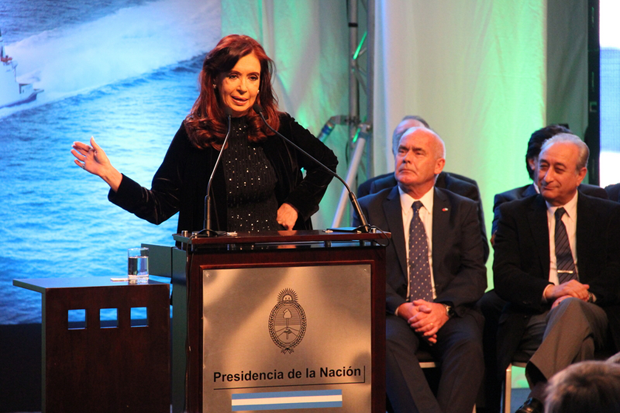14 Nov 2013 | Events
 Speakers
Speakers
Professor Mary Beard – Professor of Classics, University of Cambridge
Caroline Dinenage MP – Conservative
Chris Bryant MP – Labour
Helen Lewis – Deputy Editor, New Statesman
Padraig Reidy – News Editor, Index on Censorship
Chair: Jackie Ashley – Journalist and broadcaster
Where and When
19:30 – 21:00, Tuesday 19 November, 2013
Attlee Suite, Portcullis House, London SW1A 2LW
CLICK HERE TO RESERVE YOUR PLACE
The way we engage in political discourse has undoubtedly changed with the advent of a more fluid online social experience. Online forums, blogs, social media and even gaming are continuing to shape how we interact with each other, but more importantly, how we connect with the institutions that represent us in the democratic process. But as political discourse is absorbed within a wider, less streamline online conversation, how can we ensure that the voices of less represented groups are preserved?
Women in public life have faced an increasingly virulent form of online abuse in pursuit of legitimate social and political goals, causing their voices to be sidelined or, worse still, lost. If digital media continue to dominate our interactions and conversations, how can we safeguard women’s online engagement with the democratic process? And what will this mean for how we view the Internet?
11 Nov 2013 | Americas, News

While president Cristina Fernández de Kirchner’s government took a hit during midterm elections, Argentina’s supreme court ruled her restrictions on the country’s media were constitutional. (Photo: Claudio Santisteban / Demotix)
The Argentinian supreme court recently ruled to uphold the country’s controversial media law. The decision represents a big victory for President Cristina Fernández de Kirchner, who argued that the law helps break up the power concentrated in the hands of Argentina’s biggest media conglomerate Grupo Clarín. Opponents, however, says it stifles freedom of expression and press as it would force media companies to sell off some of their outlets. Concerns have also been raised about the law being a way of punishing Clarín, which fell out with the government after negative coverage during tax protests in 2008.
This is only the latest chapter in the ongoing story of the media business in some Latin American countries, with left wing governments and private companies locked in a decade-long fight for control of what will be shown on TV, heard on the radio, printed in newspapers, and posted on websites. New communications laws, persecution of journalists and closure of television networks, however, shows who is really in charge.
Governments like Venezuela and Argentina are waging war against big media companies, while more moderate ones, like Brazil, are using milder means to try and balance the power of communication in their countries. But far from being presented as a straightforward issue of freedom of expression, most of these cases have two opposing and radical interpretations.
On one side, there is the pro-government camp. They believe the governments are democratising the media, which has traditionally been in the hands of the few. In Brazil, for example, eight families control almost 80% of all traditional media companies. The aforementioned Grupo Clarín owns national and regional newspapers, radios, TV channels and more.
Those opposing these measures, however, say they amount to censorship. Again, a good example comes from Argentina: there are some rumours that Kirchner’s administration is trying to suffocate Grupo Clarín by not allowing big chain stores to advertise in their papers. There is also the infamous case of the the closure of Venezuela TV channel RCTVI in 2010.
Both sides talk of freedom of expression, arguing they want to show what is better for the public. But the public – those with the most to benefit from a good and transparent media – are not being allowed to decide for themselves. This is not happening just in Argentina and Venezuela, but across the continent – in Ecuador, Nicaragua and Bolivia, and, albeit in a much gentler way, in Brazil.
Professor Mirta Varela, specialist in history of the media at the University of Buenos Aires, is among those who believe governments are not repressing the big companies or trying to dominate the industry. “The measures taken have shown the political and economic power of the main companies, the spurious origin of their economic growth and their relationship with the dictatorship”, she explains, referencing Grupo Clarín and the military regimes that held power in almost all the Latin American countries from 1960 to 1980. But she also sees some problems with this polarisation: “There is a little room to set a new agenda; to make independent criticism, not overtly for or against the government.”
Cecilia Sanz works for Argentinian TV show “Bajada de línea”, which roughly translates to “Under the Line”. The show is hosted by Uruguayan Victor Hugo Morales, a well-known journalist connected to what Sanz calls “the progressive governments” in Latin America. Here she groups together a number of different left-leaning governments from across the continent – from moderates Lula da Silva and Dilma Rousseff in Brazil, to the more radical Evo Morales in Bolivia and Rafael Correa in Ecuador.
The show comments on the state of the media in Latin America, mainly arguing against the big private companies. “Our main goal is to put in context and show how the media owners have the intention, above all else, to accomplish their economic objectives,” she says. “The are using ‘freedom of expression’ as an excuse for this”. She mentions the case of powerful Mexican TV Azteca, which according to her, supports all the candidates from the hegemonic party PRI, and Chilean paper “El Mercurio”, which used to attack Chilean ex-president Salvador Allende in the 1970s – again putting very different cases in the same group.
The more radical of these “progressive governments” accuse the media industry of trying to destabilise the authorities or to encourage coups d’état. Venezuela’s putsch in 2002 is always mentioned. In this case factions of the media was directly fighting against Hugo Chávez – so Chávez took them off the air.
“This is an insult to the audience because in all of cases it is about the most popular media channels”, counters Claudio Paolillo, president of the freedom of press and expression commission of SIP, Sociedad Interamericana de Prensa (the Inter-American Press Society). “No one has put a gun to the audience’s head to force them to choose what to read, listen or watch, and on what channel.”
Paolillo says the government engages in “Goebbels’ style” propaganda, sustained by public resources, to oppress independent or critic media and journalists. He adds that, ironically, these radical “progressive governments” act like the conservative military regimes of the past. “It is an ideological posture. They want to nationalise communications media as if it was a regular business that offers services or products.”
Paolillo says SIP is against Latin Americas state-controlled monopolies or oligopolies, but reaffirms it is the audience that has the real power to decide what to watch, and where. If they want to watch the same news program, the government shall not interfere. “Unfortunately in Argentina as in Venezuela (and we must add here Ecuador, Nicaragua and Bolivia), governments have created their own media companies, expropriated and bought private ones – in some cases even working through a figurehead”, he complains.
Brazilian political scientist Mauricio Santoro brings up another common problem in the region – organised crime targeting reporters in Mexico and Colombia. But he says this is not a new situation. In his opinion, what is new, is “progressive governments” using the power of the state to control its opponents.
“The alternative proposed by these leftist governments is not based on the construction of an alternative model that privileges pluralism and gives a voice to social and community movements. It is about breaking business groups and giving power to a state press that acts like a government representative and not a public one.”
Worried about the poor quality of the media across Latin America, Santoro suggests the continent needs a more dynamic media, more capable of listening and understanding the true necessities of the people of a region going through “profound change”.
“Looking at the local scene”, he asks, “are we able to find any country where the traditional media meets this expectation?”
Not really.
This article was originally posted on 11 Nov 2013 at indexoncensorship.org
11 Nov 2013 | News, United States

Sixty-six percent of American writers disapprove of their government’s collection of phone and internet data, according to a survey from the PEN American Center.
The survey of 540 US writers found that a majority assume that their communications are monitored. PEN says that this assumption has prompted some to self-censor when writing or researching certain subjects or communicating with sources, or friends, abriad.
“I assume everything I do electronically is subject to monitoring,” one writer said in responding to the survey.
The report states:
This assumption is striking: in a short span of time, the United States has shifted from a society in which the right to privacy in personal communications was considered inviolate to a society in which many writers assume they have already lost the right to privacy and now expect to be spied upon almost constantly.”
Survey respondents were concerned about the US framework for surveillance would become “business as usual” for the rest of the world.
Writers reported self-censoring on subjects including military affairs, the Middle East North Africa region, mass incarceration, drug policies, pornography, the Occupy movement, the study of certain languages and criticism of the US government.”
Read the full report here
11 Nov 2013 | News, Pakistan

When Shamsheer Khan, learnt about the drone strike on Hakimullah Mehsud, the Pakistani Taliban supremo, on Nov 1, the 45-year old taxi-driver in Karachi, went to the mosque and prostrated before God to help the young fighter. “I prayed that if he were fighting a jihad against the Americans, Allah should protect him and if he had expired in way of jihad, to elevate him to the highest position of an Islamic fighter.”
Mehsud was killed in a US drone strike in the Dande Darpakhel, in the North Waziristan tribal region of Pakistan, bordering Afghanistan. He had succeeded Tehrik Taliban Pakistan’s (TTP) Baitullah Mehsud, in 2009, after the latter was killed in a similar attack by the drones.
Mehsud has claimed to have orchestrated several fatal attacks on the Pakistan army and also had a hand in the 2010 suicide attack in Afghanistan in which seven CIA agents were killed.
Strangely, Khan’s empathy for a perpetrator of violence finds resonance across the country where anger against drones is high, a reason for such an extreme anti-American sentiment.
Shortly after Mehsud’s death was confirmed, leaders from religious-political parties like the Jamaat-i-Islami’s (JI) Munawar Hasan called him a “martyr” and Jamiat Ulema-i Islam’s (JUI) Fazlur Rehman went a step further saying anyone killed by US is a martyr.
The taxi driver justified the violence saying: “When the leaders of this country have sold their souls to the West, somebody has to bring them back to the true path of Islam and if violence is what is needed, then be that.”
But Mosharaf Zaidi, a political analyst has no illusions that Mehsud is none other than a “mass murderer.” Calling Mehsud “a martyr was a grave tactical error and a dangerously immoral thing to do,” he said, adding. “The TTP is a terrorist organisation that deserves neither any sympathy from Pakistan, nor from any other country,” he added.
Zahid Hussain, defence analyst and author blames it on a “complete disarray” he sees in Pakistan’s policy. “Nawaz Sharif wants to normalize relations with the US, but there is no clarity on how he wants to deal with the issue of rising militancy in Pakistan that also threatens the US interests in the region.”
When news of Mehsud’s death reached the rulers, the narrative changed slightly. Though not directly empathising with the TTP, Pakistan’s interior minister, Chaudhry Nisar said the drone attack had scuttled the peace process that the government was about to start with the Taliban. Imran Khan, also in favour of talks with the Taliban, threatened stopping the NATO supply line going through Khyber Pakhtunkhwa province, where his party, the Pakistan Tehreek-e-Insaf (PTI) is ruling, if drone strikes did not end.
“The TTP shura [council] had frequently derided the notion of peace talks and, even before the death of Mehsud, had not committed to negotiations,” pointed out said Dr Pervez Hoodbhoy, noted peace activist and an academic.
Still, if negotiations have to happen, Zaidi said these “must begin with the organisation’s [TTP] acceptance of the Pakistani constitution and the sovereignty of the Pakistani republic over Pakistani territory.” He, however, was sceptical of saying “no sign of such an acceptance” seemed to exist.
To a nation, in the throes of daily violence, last week’s events have only led to historic bewilderment bordering on the dangerous. A wave of confusion seems to have enveloped the people blurring the distinction between a hero and a villain.
“It only confuses an already shattered national discourse in Pakistan about rule of law, national sovereignty and a bright future for Pakistani children,” said Zaidi.
Hoodbhoy finds Mehsud being termed a martyr incredulous. “It indicates some kind of collective mental disorder!” he said, adding: “The Pakistani mind, whipped into hyper anti-Americanism by the media and parties like PTI and JI, appears to have lost its sense of balance.”
To Zaidi, Pakistan’s handling of the TTP has been nothing short of tragic. He puts the blame squarely on both the government and political leaders who helped “create a narrative in which Mehsud, seems to have become a victim of drones.” He said the drone strikes would not exist if the Pakistani state had taken care of the criminals and terrorists that have been “festering and building up in FATA and beyond since well before 9/11”.
With the new TTP leader Mullah Fazlullah though, there is little doubt among the Pakistani people over who their foe and versus friend is. Fazlullah had virtually held the valley of Swat hostage and embarked on a systematic, violent movement to wipe out dissent back in 2007-2009. Last year it was his men who had shot Malala. Eventually the army had to step in and flush him and his followers out of the region.
To Hoodbhoy, this change of guard has given the Pakistani state a “narrow window of opportunity to hit Fazlullah and his band of terrorist thugs before he consolidates his power.”
But, he questioned: “Will we be able to find the courage and strategic wisdom? He answered it himself with a grim: “I doubt it!”
On 10 Nov, the Inter Services Public Relations, which is the official PR cell of the army, condemned the use of the word martyr to describe Mehsud, saying it misleading and irresponsible.
This article was originally published on 11 Nov 2013 at indexoncensorship.org
 Speakers
Speakers


